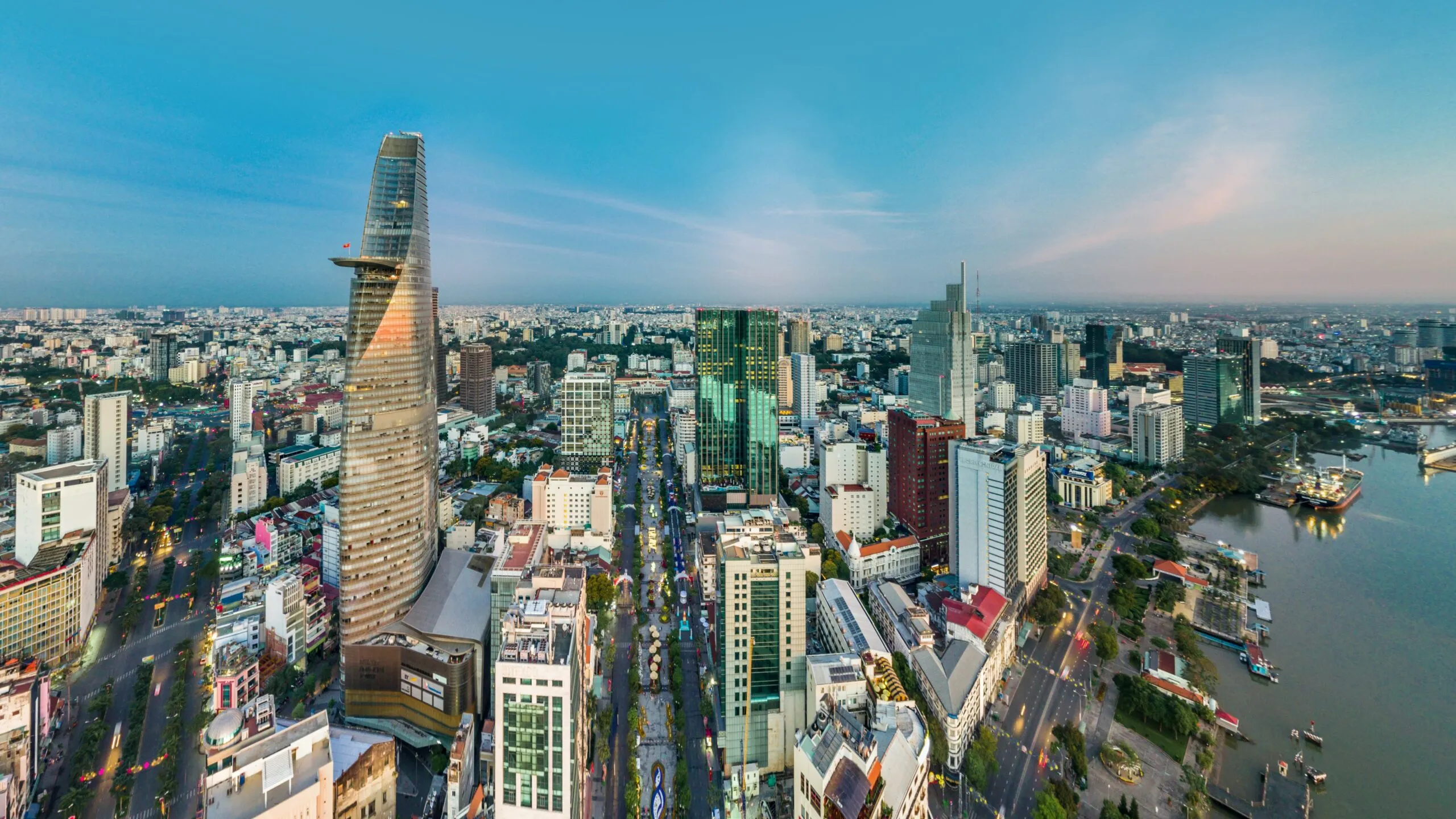With 40 economies, four billion people and a staggering $47.19 trillion in economic activity, the Indo-Pacific represents a new horizon of opportunity for the world.
You have probably heard a ton about the Indo-Pacific region recently, but if you're not clear on exactly what's going on, you're not alone. So, we thought we'd break it down.
In Canada, the Indo-Pacific Strategy is designed to increase collaboration, expand trade and investment opportunities and support immigration within the region. The Indo-Pacific is made up of 40 countries and is home to six of Canada's top 13 trading partners. Given its economic potential and growth, it's no surprise that Canada has been keen to engage with the region. And yes, you guessed it. Their startup ecosystems have seen a ton of momentum.
In line with Canada's work to foster innovation globally, DMZ encourages its startups to explore new markets and supports global partners in crafting startup support programs.
We decided to sit down with our global offices from the Indo-Pacific to learn more about their markets and what teaming up with DMZ's HQ has meant for them.

VIETNAM
Zone Startups Vietnam, a DMZ-powered accelerator in Ho Chi Minh City, provides hands-on strategic and tactical guidance to Vietnamese startups seeking market validation and customer acquisition."
Vietnam offers a booming startup ecosystem for companies looking to expand. VC investments have been growing steadily thanks to government tax incentives that help attract foreign investors and companies. Today, the country anticipates VC funding to reach $5 billion by 2025," said Quynh Vo, Program Director of Zone Startups Vietnam.
Fintech, in particular, has seen a 248% increase in startup investment, with retail, health and education following close behind. Plus, their economy is projected to maintain a steady growth rate of 6.5% by the end of 2023.
"DMZ provided us with the blueprint for startup success. By leveraging their tried and true playbook, we equip startups in the Vietnamese ecosystem with the tools to succeed. We take pride in the community we've built, and the startups have been able to support to date," said Quynh Vo, Program Director of Zone Startups Vietnam.
JAPAN
DMZ is the official Canadian incubator partner for JETRO's Global Acceleration Hub, catering to Japanese startups seeking expansion into Canada. DMZ supports Japanese startups entering the Canadian market through coaching, mentorship and matchmaking.
Japan offers a globally recognized economy and a corporate landscape eager to collaborate with and invest in startups. Japanese corporations often look to startup solutions to improve their business operations, providing a clear pathway to success for Canadian startups looking to expand.
"DMZ and JETRO's collaboration has served as a conduit for Canadian and Japanese startups looking to expand, providing international opportunities for Japanese-led startups to be immersed in Canada's tech ecosystem," said Saito Takeshi, Executive Director of JETRO Toronto.
When it comes to the most promising opportunities for Canadian startups, the country is hyper-focused on increasing digitization, improving operational efficiencies, reaching Japan's net-zero targets and supporting Japan's aging population.
"The key is for Canadian startups to bring innovation that is not yet available in Japan but has been successfully validated in North America. There also needs to be an understanding that the technology or business model may need to be adapted for the Japanese market," said Saito Takeshi, Executive Director of JETRO Toronto.
Powered by DMZ, Landing Pad Tokyo is a globally connected hub accelerating the capabilities of Japan's top innovators and helping companies lead digital transformation in the manufacturing sector.
Japan has a long history of investing in the Indo-Pacific. In fact, Japan set a precedent for engaging with the Indo-Pacific, establishing one of the first strategies geared toward the region called the 'Free and Open Indo-Pacific.'
"Working with DMZ has been a driving force for Japanese SMEs. High school students in Japan have been able to participate in their student entrepreneur program, Basecamp, inspiring them to dream big. Their dedicated team with diverse backgrounds broadened our perspectives, unearthed forgotten Japanese values and added immeasurable value to our partnership," said Chieko Bond, Director of Business Development and Canadian Operations of Landing Pad Tokyo.

PHILIPPINES
StartUp Village and DMZ work together to nurture innovation between Canada and the Philippines, empowering entrepreneurs from both countries to thrive and make meaningful contributions to the global startup landscape.
"Aside from its strategic location, the Philippines offers a lot for startups looking to expand into the Indo-Pacific, thanks to its young and tech-savvy population. With its average age sitting at 25.8 and being the social media capital of the world, startups don't only have a solid potential user base but a robust workforce," said Carlo Calimon, President and Co-Founder of StartUp Village.
"The partnership between DMZ and StartUp Village aims to bridge the gap between our two regions, creating a gateway that will help open markets, create an exchange of knowledge and expertise and ultimately create shared successes for both organizations and countries," said Carlo Calimon, President and Co-Founder of StartUp Village.

SINGAPORE
The National University of Singapore (NUS) and the NUS Overseas Colleges (NOC) program provides aspiring student entrepreneurs with an opportunity to spend 12 months in Toronto, working full-time with a DMZ startup.
"Students get to take on roles ranging from software development and data analytics to marketing and business expansion. By working with DMZ startups, students experience startup culture firsthand and learn from founders directly, inspiring them to create their own companies one day," said Harpreet Singh, Regional Director (Americas) at NUS Overseas Colleges and Associate Director of the National University of Singapore.
Having ranked 8th globally for its startup ecosystem, Singapore's desirable and strategic location in Asia's epicentre empowers enterprises to access the area's most rapidly emerging markets, such as Indonesia, Thailand and Vietnam.
Singapore has gained a reputation for its free-market economy that promotes international trade, business regulations, and market competition. Similar to Canada, Singapore provides visa and economic incentives and support for foreign startups keen to set up a presence locally.
For Canadian-led startups eyeing the market, Singapore shows high demand in cybersecurity, fintech, and AI, with plans to boost its agricultural sector.
By championing global collaboration, DMZ is fueling innovation ecosystems worldwide, helping more startups succeed internationally and building bridges to connect Canadian startups with the Indo-Pacific region and beyond.
Learn more about DMZ's global network and how you can gain a competitive advantage with DMZ in a rapidly changing market by heading to dmz.to/global.


.webp)




